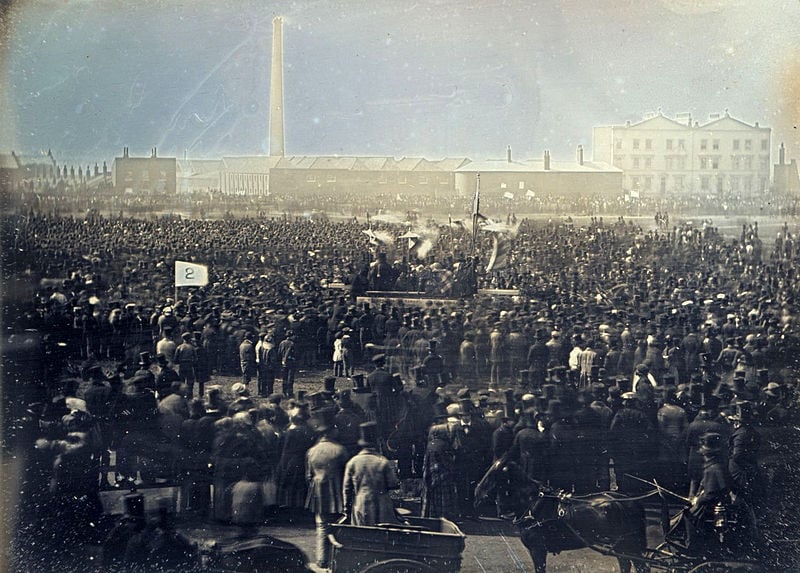Tactical Utopia
By:
October 19, 2011
Here’s the thing you start to get when you hang around an occupation: it isn’t perfect. It isn’t supposed to be perfect. As Doug Rushkoff has argued, the Occupy movement isn’t solely a protest; it’s also model. Its utopianism is driven not by some postapocalyptic or prelapserian ideal, but by something immediate and (as Robin Sloan formulated it yesterday in a handy misprision) tactical. It’s a utopia that glimmers briefly here and there, and only in the present — and yet is in dialogue with the past as well as the future.
That spirit is in evidence even on a rainy day when the people’s mic is quiet and the occupiers are mostly holed up in their tents. It becomes palpable when one sits awhile in the library and listens to the patter of rain on the tent roof as people come and go, sharing their stories, setting up Skype interviews, and figuring out where they can charge their phones. Some of them are just getting out of the rain — although getting out of the rain in the midst of books is a special case: a visitor shakes off her poncho in the doorway, settles onto a donated chair or an overturned bucket, and listens awhile; conversation rises and falls, ebbing into the peculiar, charged quiet of people reading together. And then a book catches her sight — maybe it’s the poetry of Robert Frost, maybe it’s 1491, Seeds of Liberation, or even The Audacity of Hope (remember audacity? remember hope?)— and soon the words are flowing, her own thoughts answering those of another, a remote or long-dead author who likely never imagined a tent city in Dewey Square, and whose notions yet enliven the occupation with a tender, special force.
Books have been doing this kind of work for a long time. In the middle of the nineteenth century, England’s Chartist movement — its energies strikingly similar to those of the Occupy movement, its intent similarly misunderstood by the powerful — established reading rooms throughout Britain. This was an era when public libraries were not widespread; most lending libraries charged subscription fees. The free Chartist libraries were enormously popular — and for the elite, enormously unsettling. A commentator in Blackwood’s magazine argued that “Whenever the lower order of any state have obtained a smattering of knowledge they have generally used it to produce national ruin.” Utilitarian reformers sought public funding for libraries where, they argued, the intellectual appetites of working class-readers could safely be turned to productive ends.
It would be useful, probably, if the people’s library had an online catalogue; it would do well to offer occupiers and visitors some access and guidance to the vast resources of information and imagination available online. (The historian Jo Guldi, with whom I spent a morning in the library at Occupy Boston, makes a strong case for this: the scholarly literature on disenfranchisement, poverty, and class conflict is vast, and a wealth of primary resources could be marshaled, curated, and interpreted electronically as well.) And as Jo also points out, there’s something especially forcible about occupying, about taking up space. This is doubly true now, in a time when the virtual has grown so magically, richly figured, while the texture of public space becomes ever more inhospitable to the all-but-forgotten kinesthetic dimension of the public sphere. That is what’s palpable even on a rainy morning when people energized by ideas and stories come together in a sodden tent filled with books. The medium doesn’t matter so much, of course; it’s the people, the ideas, the stories, the charge that count. Perhaps the best word for it after all is utopia — ephemeral, tactile, tactical.

